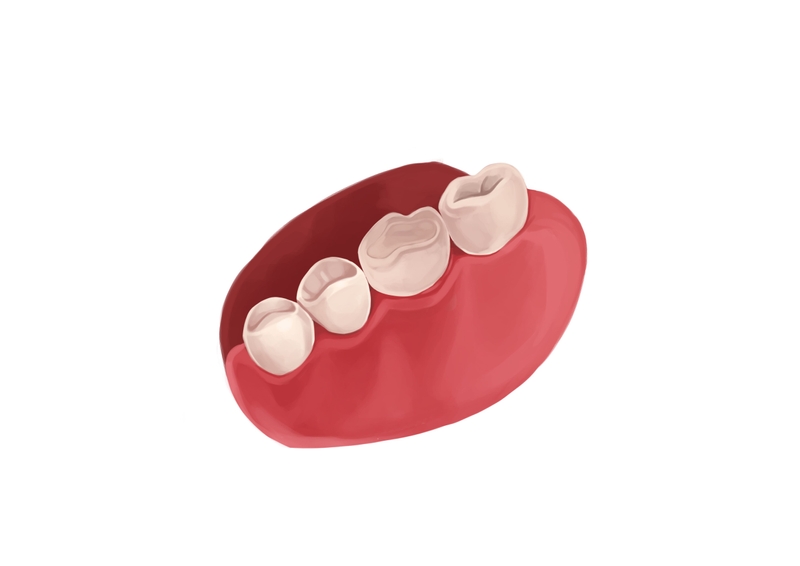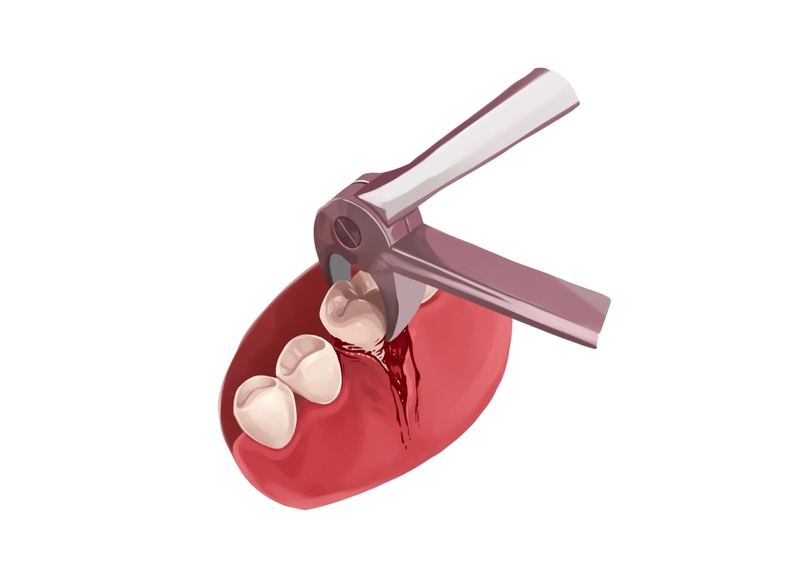- Physical damage to your jaw or directly to the wisdom tooth often breaks it. Enamel decay makes wisdom teeth less resistant to physical impact.
- A broken wisdom tooth can cause discomfort ranging from sensitivity to severe pain and is susceptible to bacterial invasion, which can lead to infection and tooth loss. In severe cases, untreated tooth infections can be fatal.
- With timely medical attention, you may be able to save your wisdom tooth. Otherwise, you will need extraction.
We respond promptly to your dental issues. Find emergency dental care on Authority Dental. Use a straightforward, speedy, and trustworthy service.
Do you have to extract a broken wisdom tooth? Here's everything you need to know.
Why do wisdom teeth break?
Wisdom teeth might seem to be less prone to breaking due to how far back in the mouth they reside. You can damage them just like any other teeth.
Your wisdom teeth may also grow unevenly due to the limited space available for their development. Depending on how the tooth erupts, this can increase the likelihood of the wisdom tooth breaking.
Finally, the location of these teeth makes it difficult to maintain their hygiene. This can weaken their structure and often leads to tooth decay.
Consequences of cracked wisdom tooth
By nature, a broken wisdom tooth usually causes discomfort. Depending on the severity of the damage, it can range from tooth sensitivity to excruciating tooth pain that radiates across the mouth. The latter happens when the cracks have reached the dental pulp.
Note that you may also feel no pain at all. This is typical of severely broken teeth, where a blood clot cuts off blood flow to the nerves. Without a blood supply, a broken tooth will die or necrose. Still, there may be excessive pressure on the periodontal membrane located under a cracked tooth. It can cause painful sensations, even if the tooth itself is numb.
A fractured wisdom tooth is susceptible to infiltration of bacteria. Their proliferation will lead to a rotten wisdom tooth and its loss. If the bacteria infiltrate into the pulp of the tooth, it can cause severe infection. Untreated infections can affect the entire body system and infiltrate the bloodstream, causing systemic inflammation. In severe cases, tooth infections can be lethal.
Broken wisdom tooth treatment
Schedule an appointment with a dental professional as soon as possible to avoid the problems mentioned above. If treated early, there is a lower chance of developing complications, such as infection. Most providers will recommend extracting wisdom teeth if they note decay, partial eruption with insufficient space for the tooth to erupt fully, or an inability to keep the tooth clean and healthy.
Lee explains the specifics of a broken wisdom tooth: ”I find that the following simple analogy often helps them understand why. I ask them to think of their wisdom tooth as a piece of furniture crammed into the very back of a cluttered closet. It does not serve a critical function, is nearly impossible to reach, and presents a real challenge to clean around.”
”Now, if that piece of furniture breaks, does it make sense to perform a complex, expensive repair in that cramped, dark space, knowing it will be hard to maintain and likely break again,” Lee continues, ”or is it more practical to remove it, which makes the entire closet cleaner and healthier for everything else inside?”
”That is how we often have to view a broken wisdom tooth,” he concludes, adding, ”because of its location, it is already at high risk for dental decay and periodontal disease.”
Dental filling
If there is no drastic damage to the tooth structure, the repair may be suggested. A doctor can treat minor decay on a wisdom tooth with a composite filling.
The procedure is similar to treating other teeth with a dental filling. A filling treatment can preserve the tooth's structure and significantly reduce the risk of decay.
Note that if you are suffering from a misaligned wisdom tooth problem, the filling can wear out more quickly or be more susceptible to fracture. If the tooth is severely misaligned, your provider may recommend extraction as the best treatment option for long-term prognosis.

Picture by Authority Dental under CC 2.0 license
Wisdom tooth extraction
A shattered wisdom tooth is a candidate for extraction. Oral surgeons will likely perform the extraction. For simple cases, your general dentist may also be able to extract the tooth. You can decide to inquire with your provider about possible sedation options to help minimize anxiety and discomfort.
Commonly, your doctor will cut the tooth into segments. This will allow your doctor to remove the tooth with minimal trauma and ease.
If you are undergoing any form of sedation, make arrangements for transportation home after the procedure. Your medications may continue to work for several hours. Allow yourself time to rest after the extraction. Prepare some over-the-counter pain medications to reduce discomfort. Switch to a diet of soft foods while your oral cavity heals. Your provider will review postoperative instructions with you to ensure an ideal recovery.


Picture by Authority Dental under CC 2.0 license
Is a broken wisdom tooth an emergency?
Only a wisdom tooth with minor surface damage is not an emergency. You can consult your dentist about such an injury during your regular checkup. For more serious issues, please schedule an appointment as soon as possible.
Your tooth may be restorable if the decay is minor. Putting off going to the dentist increases the risk of dental decay. This can lead to imminent tooth loss.
Additionally, infections in your tooth can spread to other parts of your body. They can affect other organs and compromise your overall health. If you notice any signs of infection, you should see an emergency dentist immediately.
Harry Lee, DMD
When a patient calls my office about a broken wisdom tooth, their hope is almost always for a simple filling. However, the conversation we have is usually quite different from the one we would have for any other tooth in the mouth.